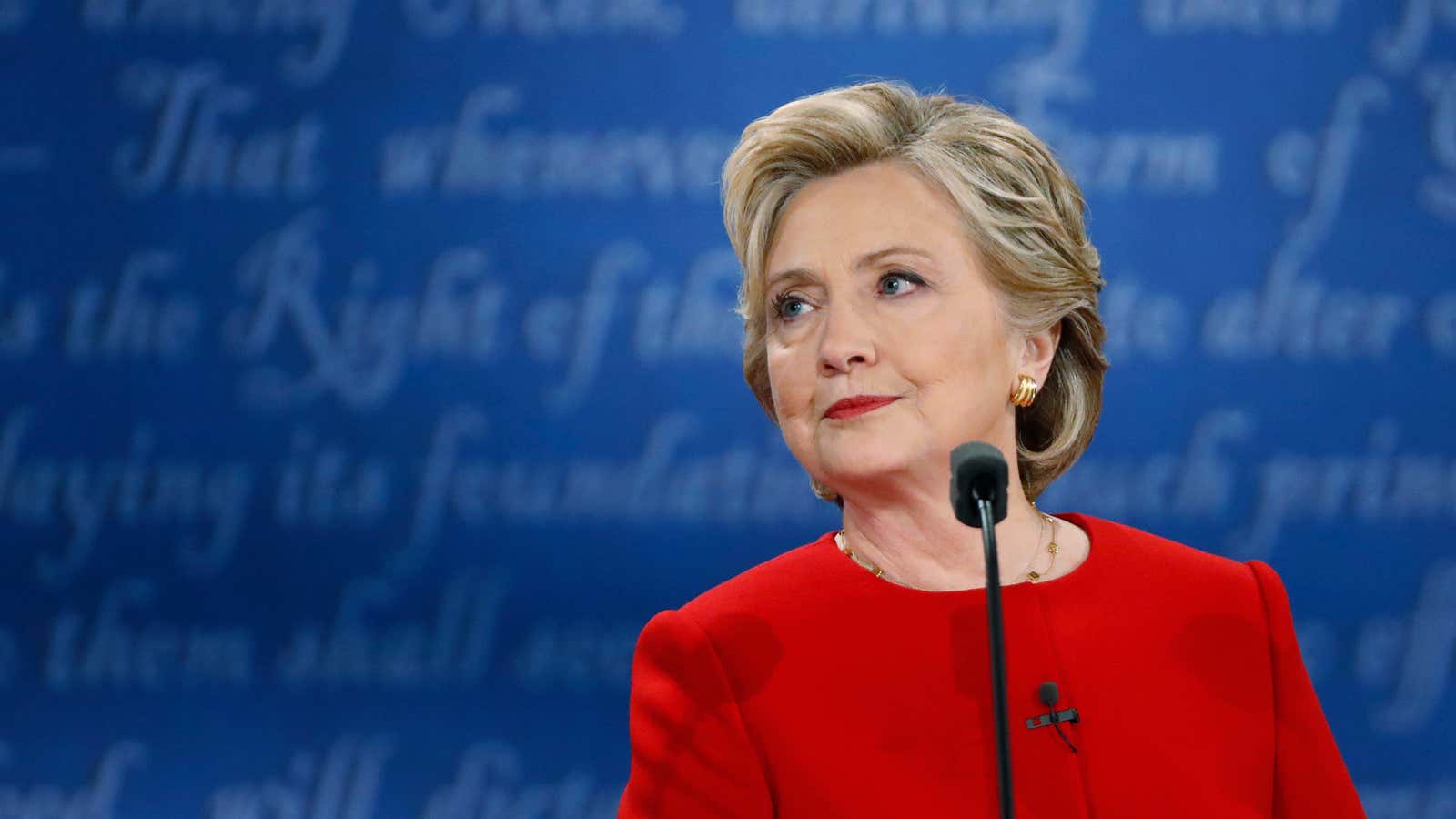Nigerian writer Chimamanda Adichie has been actively weighing in on the US election. Her short story on Donald Trump’s campaign from the perspective of his wife, Melania, is a study of a man-child, desperate for external approval. She penned an open letter of appreciation to first lady Michelle Obama, who has been campaigning for Hillary Clinton. Now, in an essay published days before the election, she tackles a question that has persisted throughout the campaign: Clinton’s supposed lack of likability.
Writing in the Atlantic, Adichie argues that much of the criticism of the Democratic presidential candidate comes from the fact that Clinton, as a woman, is not allowed to be complicated or to deviate from the tradition of first ladies. Adichie writes:
Hillary Clinton was guilty immediately when she stepped into the view of the American public as the first lady of Arkansas. She was a lawyer full of dreams. She had made sacrifices for the man she loved, waived her plans, and moved to his state. But she also dared to think herself her husband’s equal, to assume herself competent enough to take on expanding access to healthcare and reforming the Arkansas public education system. She was guilty of not being a traditional first lady. She offended the old patriarchal order. The conservative media loathed her…
Because Hillary Clinton is a woman, she is judged too harshly for doing what most politicians do—hedging sometimes, waffling sometimes, evading sometimes. Politicians are ambitious; they have to be. Yet for Hillary Clinton, ambition is often an accusation. She is held responsible for her husband’s personal failings, in the gendered assumption that a wife is somehow an adult and a husband a child.
Back in August, Adichie, the author of We Should All be Feminists told People magazine, “There’s a lot of talk about, ‘Oh, Hillary Clinton is so disliked.’ And I just keep thinking, ‘Well, she’s won all of these elections. Why are we not asking the question of who likes her and why she’s liked?’ ”
Those who support Clinton—not because of who she is up against, but for her own achievements—appreciate her experience, confidence, and boldness, according to Adichie. Most importantly, the author writes, “There are millions of Americans who do not have the self-indulgent expectation that a politician be perfect. They are frustrated that Hillary Clinton is allowed no complexity. And they love her.”
